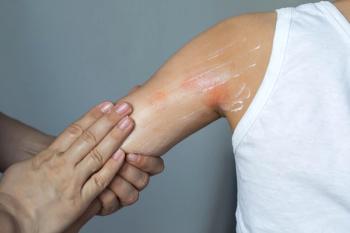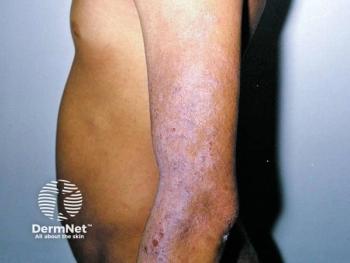
Are frivolous lawsuits fair? Hardly
It is valid to ask how serious the issue of frivolous physician malpractice claims is. Unfortunately, there is a dearth of good data on this issue.
He has a large general medical dermatology practice and has, for years, used oral retinoids correctly. He has learned to accept the increasing restrictions on the use of these drugs and conforms to all Food and Drug Administration requirements.
Despite everything he has done to medically and legally protect himself and his patients, a recent 20-year-old patient became pregnant while on oral retinoids. After extensive counseling about the risks of delivering a deformed baby the young women decided to bring the baby to term. Unfortunately the baby was born with myriad skeletal and cardiac anomalies.
Making mistakes
Certainly physicians cannot label the current medical malpractice system as unfair because doctors never make mistakes – they do.
The highly respected group, the Institute of Medicine, estimates that 98,000 patients die each year as the result of medical mistakes. Since this number represents actual deaths, it must be assumed that mistakes not leading to death are a much higher number. Assuming that physicians will concede that mistakes can be and are made and that some of these mistakes do lead to grave patient harm, what is it about the malpractice system that is unfair?
One commonly heard complaint relates to the large awards some patients receive.
Physicians hold such awards responsible for high medical malpractice premiums, and they feel the premiums they pay are unfair. Physicians also object to the steep premium increases that characterize the so-called malpractice crisis. In reality physicians will receive little sympathy from the increasing numbers of patients struggling to pay medical bills. The medium income for a general practitioner in the United States in 2004 was $135,000. The medium income for dermatologists is significantly higher. Since physicians, like all humans, do make mistakes, this is a week argument.
Stronger argument
Certainly a much stronger argument, similar to the one made by Dr. Shame, is that the system is unfair because an increasing number of nonmeritorious claims are made - and an increasing number of these cases are successful. During the 2004 presidential election, both Republicans and Democrats declared war on frivolous lawsuits in general and frivolous medical malpractice cases in particular. The Kerry-Edwards team, for example, threatened attorneys, who filed frivolous lawsuits, with "tough mandatory sanctions," including the threat that, if they filed three such suits, they would be prohibited from filing such suits for 10 years.
The problem from Dr. Shame's perspective, a view shared by other physicians in similar situations, is not only that plaintiffs recover when they should not, but that physicians must bear the uninsurable costs of defending unwarranted claims. These costs include time away from the practice responding to the claim during discovery, settlement discussions and trial.
Uninsurable costs include the negative impact frivolous claims have on a physician's career, such as when claims threaten a physician's hospital privileges or membership in a managed care network.
How serious is it?
It is valid to ask how serious the issue of frivolous physician malpractice claims is. Unfortunately, there is a dearth of good data on this issue.
No one knows the answer as to how often plaintiffs assert a nonmeritorious medical malpractice claim. Dr. Shame may be correct in asserting that the medical malpractice system is unfair. Unfortunately there is as of yet no way to prove this.
Dr. Goldberg is the director of SkinLaser & Surgery Specialists of New York and New Jersey; director of Mohs surgery and laser research, Mt. Sinai School of Medicine; and adjunct professor of law, Fordham Law School.
Newsletter
Like what you’re reading? Subscribe to Dermatology Times for weekly updates on therapies, innovations, and real-world practice tips.












